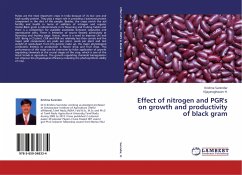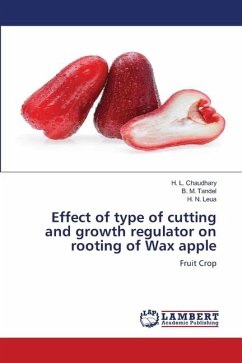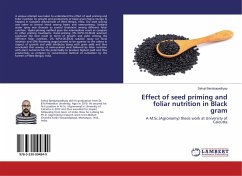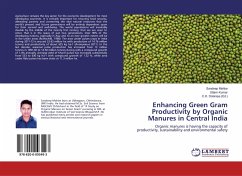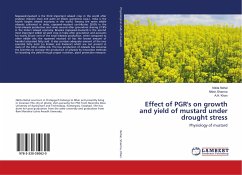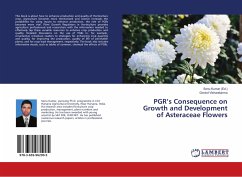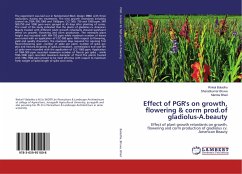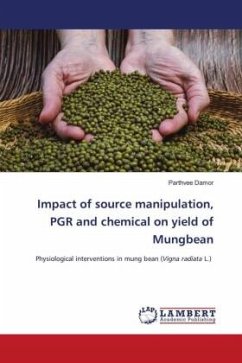Pulses are the most important crops in India because of its low cost and high quality protein. They play a major role in providing a balanced protein component in the diet of the people. Besides, the crops enrich the soil fertility and health in terms of addition of nitrogen and organic matter.Black gram is indeterminate in its flowering and fruiting habits and there is a competition for available assimilates between vegetative and reproductive sinks. There is limitation of source (leaves) particularly at flowering and fruiting stage. Hence, there is a need to improve LAI and LAD. Being a C3 plant, CGR and RGR are relatively less than cereals and the major yield components are pods per plant, seeds per plant and test weight of seeds.Apart from this genetic make up, the major physiological constraints limiting its production is flower drop and fruit drop. This performance of the crops can be overcome by foliar application of growth regulating chemicals at the crucial stages of thecrop, which is one of the latest trends in agriculture. The growth regulating chemicals bioregulators can improve the physiological efficiency including the photosynthetic ability of crop.
Bitte wählen Sie Ihr Anliegen aus.
Rechnungen
Retourenschein anfordern
Bestellstatus
Storno

